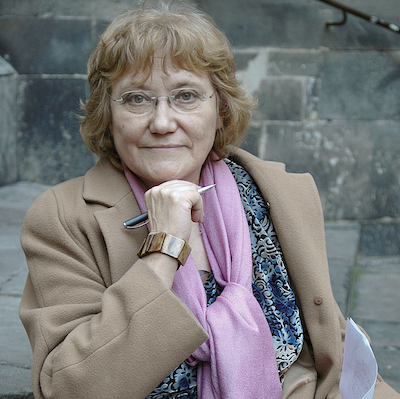A Novel Is the Text of Texts
Isabel-Clara Simó
A critic once said I was an exponent of “pure fiction”. He couldn’t have put it better. In storytelling, I tend to pure fiction, except when I’ve written novelised biographies or even a smidgen of autobiography. Also, when it comes to characters, I prefer them to be invented and not copied, and I’ve made sure, too, that I never appear in my stories. In fact, I have a low opinion of autobiography. A splendid author like Julian Barnes puts it inarguably in his magnificent novel, The Sense of an Ending: “The things Literature was all about: love, sex, morality, friendship, happiness, suffering, betrayal, adultery, good and evil, heroes and villains, guilt and innocence, ambition, power, justice, revolution, war, fathers and sons, mothers and daughters, the individual against the society, success and failure, murder, suicide, death, God. And barn owls. Of course, there were other sorts of literature—theoretical, self-referential, lachrymosely autobiographical—but they were just dry wanks”. Naturally, the reference to owls fits with the context.
I think that the short story is first-class literature, even more difficult to cultivate than the novel. The story comes to be like expressionism in painting and it’s not enough to have perfectly structured narrative elements: enunciation, standpoint, discourse, actors, narrators, focalisation, and so on. The story is always engaged in a kind of trompe-l’oeil with the reader. Yet, I feel more comfortable in the novel, in which I subordinate the argument to structure. I’m fascinated by the literary architecture of some authors and try to find structural forms that are compatible with the aim of the play of the narrative.
I’m always surprised when someone says that I’m mainly a narrator of the female universe. If I am, it’s not intentional. In fact, I have quite a lot of male characters, and it fascinates me to dress myself up as old and young men, infants, people from another age, or any character who is different from myself. Still more, I’m concerned about what I want to say. I don’t agree that the novel should be an argument, and I hate it when people talk about getting “hooked” on a novel, or say they can’t put it down and, worse, that novels are successful because they’ve sold a lot of copies.
Nevertheless, if so many people believe that I’m writing through the eyes of a woman, they must see something in my books that makes them think that. I believe in the reader. I think readers are the final interpreters of the story and that their opinion is as valid as the author’s. Moreover, staunch feminist that I am, I even feel flattered when people call me a “women’s writer”. Secretly, I’ve always thought that this is because of confusion between the author and the work, just as people confuse the views of the author with those of the characters. In this regard I have some funny, juicy tales to tell.
What I consider most important about my work as a novelist is that it continues to be trial and error, an excruciating way of finding the form, the structure, the distance, the narrative voice, the dynamic presence of the characters. I slave away at my computer. I try to get results. Every work, then, I finish as a learner who has advanced a few centimetres.
Literature is one of the most serious things of all human creativity, and also a game. And it’s extremely difficult to get it right. Experience gives skills, as it does everywhere else, but that’s not the key to anything. You have to know how to breathe literature. And you have to know how to enjoy it and suffer it. Its’s leafy and fragrant, deep and fun, ingenious and reflective. A novel is the text of all texts.
Isabel-Clara Simó. 'Una novel·la és el text dels textos', Caràcters, 71 (Spring 2015).




